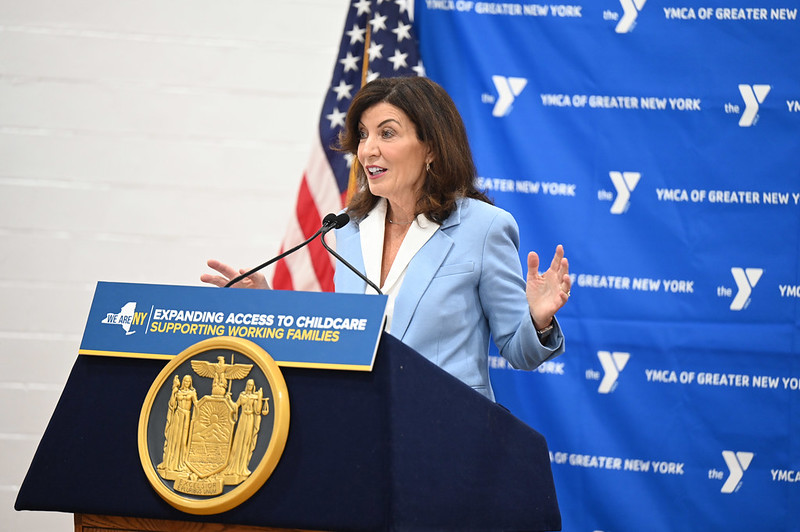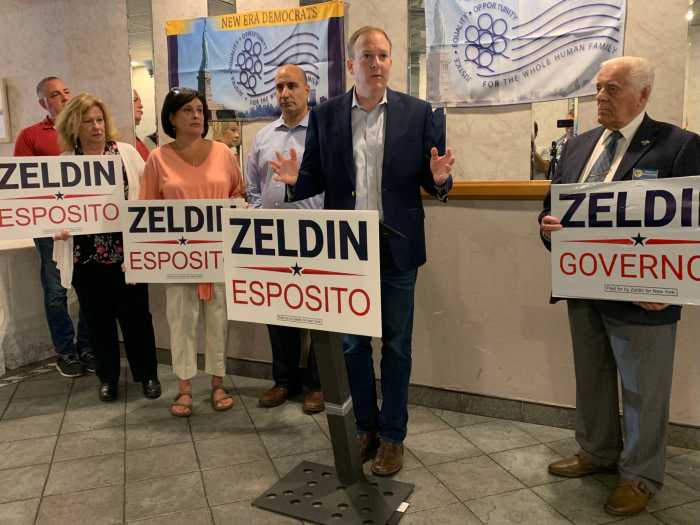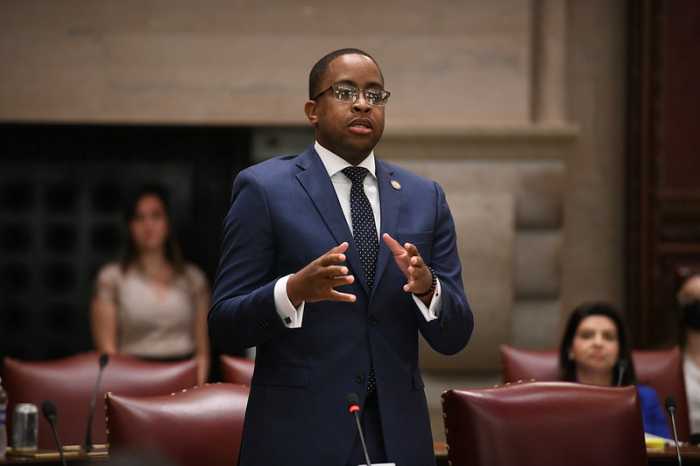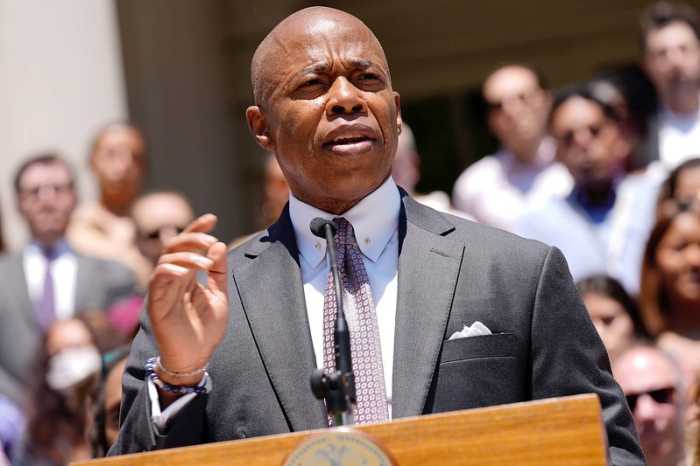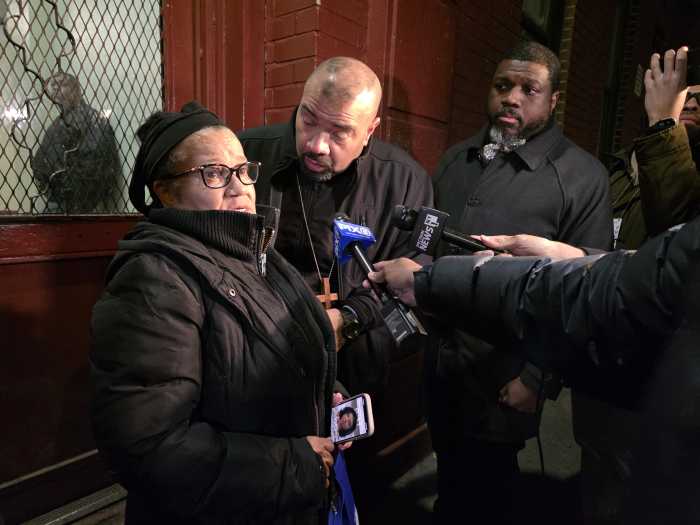Governor Kathy Hochul and U.S. Senator Kirsten Gillibrand have a message for New Yorkers – over 400,000 children across the state are newly eligible for $2 billion in child care assistance.
Hochul and Gillibrand announced Tuesday they’re launching a multimedia public information campaign to tell families from New York City to Buffalo the governor has expanded eligibility for families who can receive child care subsidies to those earning up to 300 percent of the federal poverty level. Administered by the state Office of Children and Family Services, and funded through federal dollars from the 2021 American Rescue Plan, the campaign will be rolled out on highway billboards, radio and social media platforms.
Hochul said the public media blitz is necessary because only 12 percent of the families eligible for child care assistance are actually taking advantage of it.
“Here we are adding even more, making it easier on them. But if they don’t know about it, it doesn’t matter because it hasn’t helped them. They’re still struggling out there. So we’re launching a multimedia marketing campaign for the next six months. We want to let families know what’s available for them,” Hochul said, speaking at an event announcing the campaign at the Vanderbilt YMCA in Midtown Manhattan.
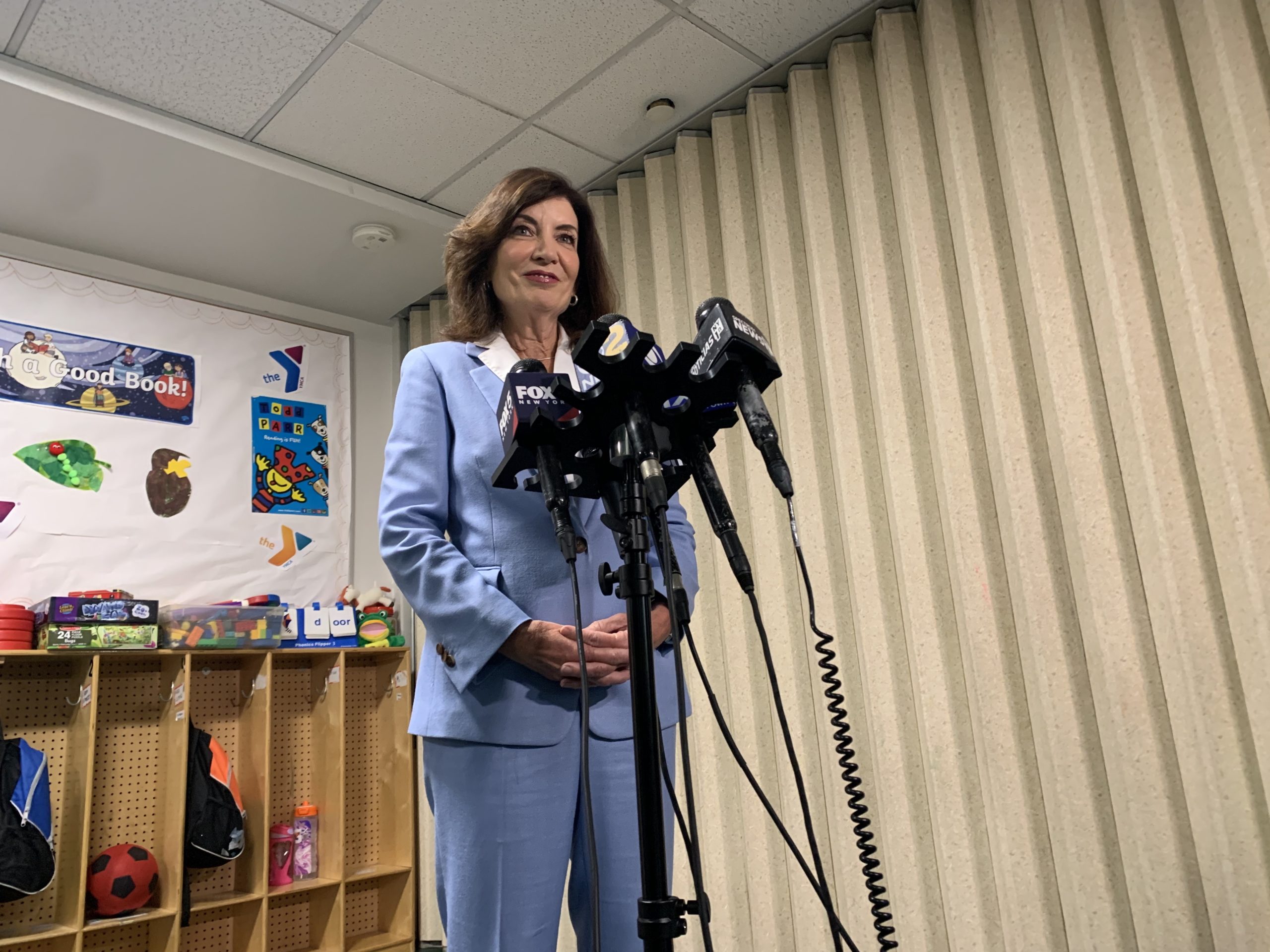
“We’re going to target social media, radio ads, digital, highway billboards, bus posters. Going to nail salons, barber shops. Wherever everybody wants to hang out, take a sign and get the information out there. And especially targeting Hispanic and African American communities. Let’s just get the information into the communities, so they understand very simply how to make sure they can secure this assistance,” she added.
Gillibrand said the ad campaign is crucial to get the message about these grants out to working families who likely don’t have time to do the research themselves.
“Most people are busy, they don’t have time to watch the news,” the senator said. “They certainly don’t have time to research grants online through the governor’s website. I mean that’s time consuming and challenging and they don’t even know that they can look. So this is going to make a difference. It’s going to go right into the families, into the feeds and into the internet of anybody who might be eligible. So, it’ll work.”
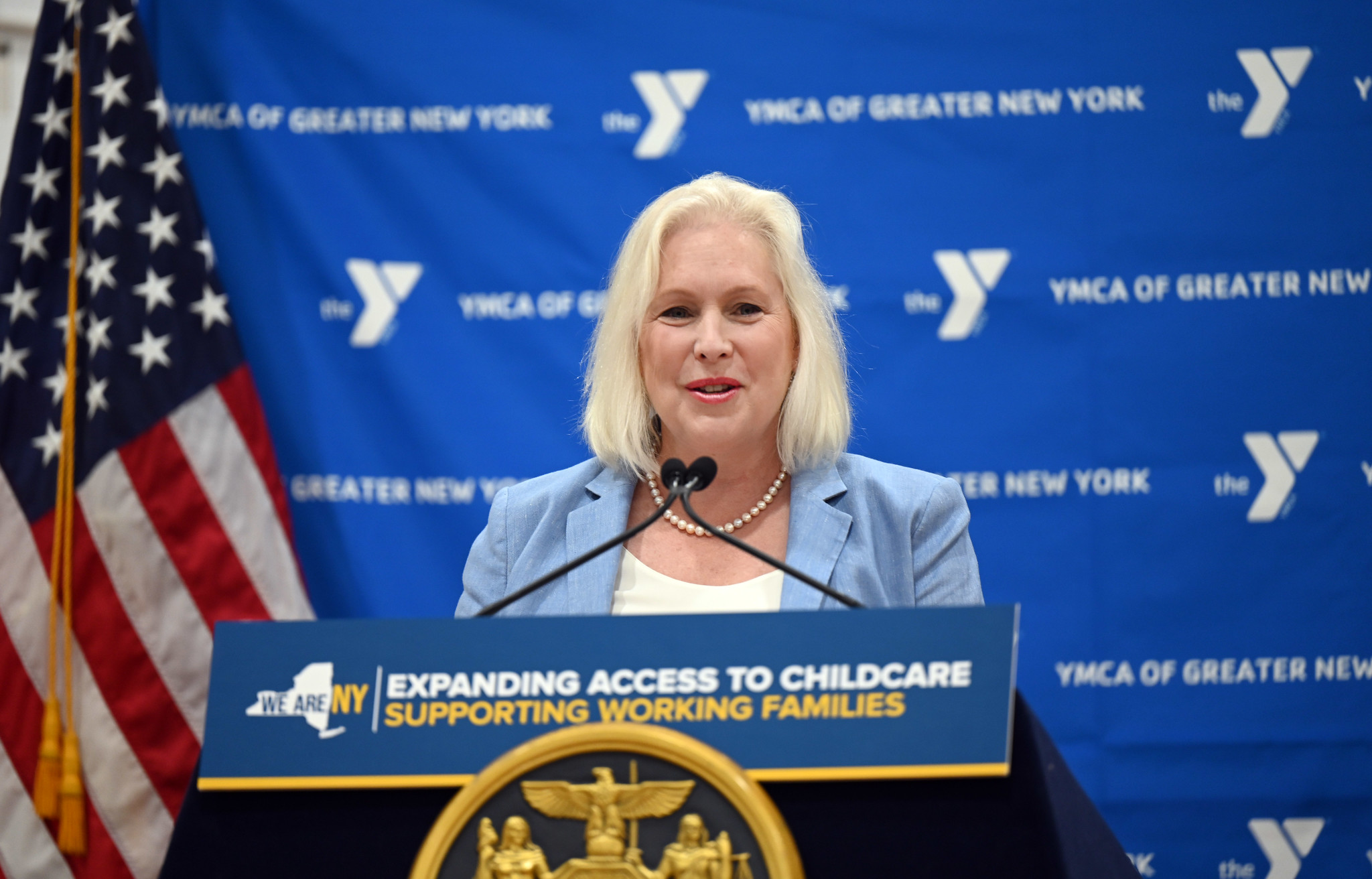
According to the Hochul’s spokesperson Avi Small, her $2 billion child care assistance allocation breaks down into $894 million in new funding for New York State Child Care Block Grants – passed as part of the fiscal year 2023 state budget, over $500 million in unspent funds already given to local social service departments and over $600 million in existing COVID-19 funding. The governor raised childcare eligibility to families making 300 percent of the poverty line – those earning up to $83,250 – up from the previous threshold of 200 percent – those earning up to $55,500.
It’s really crucial to get information out about this assistance, Hochul said, especially because so many families are struggling financially due to the economic fallout of the coronavirus pandemic and skyrocketing inflation.
“Families are struggling, I mean the cost of everything is going up from gasoline and groceries and moms trying to fill the backpacks sending [their kids] back to school,” Hochul told reporters in a news conference following the announcement. “It’s a nightmare compared to what it was a year ago. So if they can take advantage of these childcare subsidies, it’s just one less thing they have to worry about.”
Hochul and Gillibrand also announced a fresh round of Child Care Provider Stabilization Grants, which all school-age child care programs and over 900 providers licensed by the start of this year can apply for, supported by $343 million in federal funding. That money will go to increasing childcare workers’ wages and bonuses, contributing to their retirement plans, helping pay their health insurance costs and for mental health support. Plus, $50 million was allocated towards
“When you think about child care providers, the people who go in everyday and basically parent our children for us on our behalf, they’re also the first teachers,” Hochul said. “We were going around during the pandemic, at the time I said, ‘you’re the essential workers for the essential workers.’ So, now we have to bolster them up.”


